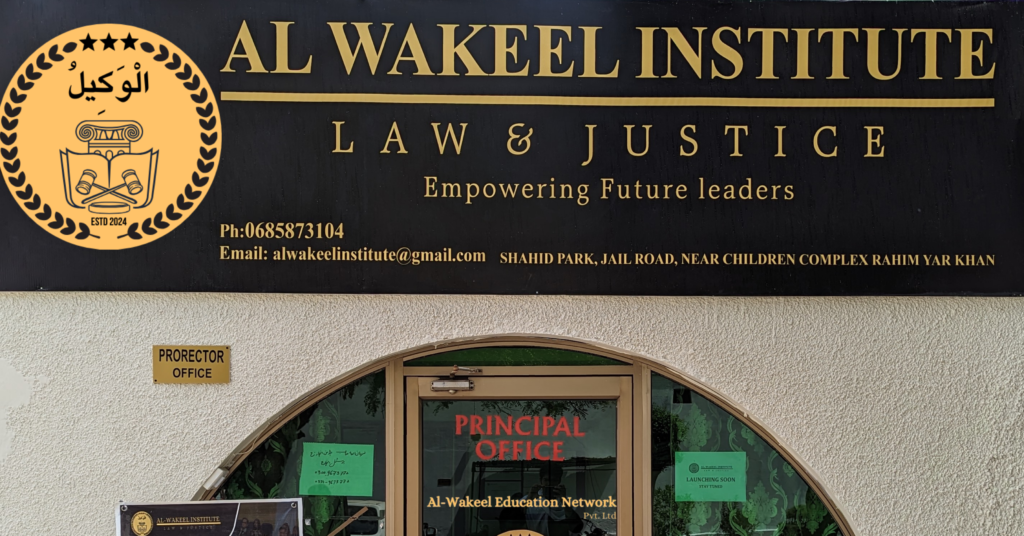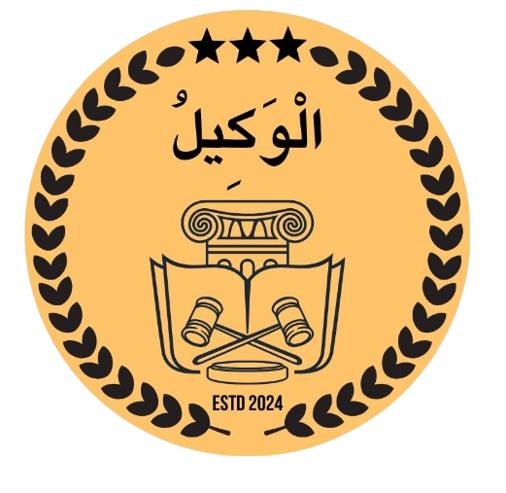Legal education in Pakistan plays a pivotal role in shaping the country’s justice system, providing the foundation for future lawyers, judges, and legal scholars. Over the past few decades, the demand for quality legal education has surged as the need for professionals who can navigate the complexities of modern law continues to grow. The education system has evolved from a limited number of institutions to a more diverse array of law colleges, catering to the rising aspirations of students seeking to make their mark in the legal field.
One of the major reasons behind this increased interest in legal education is Pakistan’s growing economy and international engagements, where understanding legal frameworks is essential. The introduction of the Law Admission Test (LAT) has standardized entry into law programs, ensuring that only those with the requisite aptitude pursue this challenging career. Law students are expected to master a wide range of subjects, from constitutional law and criminal law to international law and human rights, preparing them for multifaceted careers in both national and global contexts.
In addition to core academic programs, practical exposure through moot courts and internships has become a significant aspect of legal education in Pakistan. Institutions are now focusing on providing students with hands-on experiences, fostering their abilities to apply theoretical knowledge in real-world scenarios. Graduates from top law schools often secure positions in prestigious law firms, multinational corporations, or pursue careers in judiciary services.
With the increasing complexity of legal challenges faced in sectors like business, technology, and human rights, the role of law colleges in Pakistan is crucial. Recognizing the importance of specialized education, top law colleges in Pakistan are continuously adapting to global standards by offering updated curricula, experienced faculty, and access to legal networks.
For students choosing the best law college, factors like Bar Council accreditation and post-graduation opportunities play a critical role in their decision-making process.
Why Choose a Top Law College?
Choosing the right law college is crucial for students aiming for a successful legal career. A top law institution provides more than just academic knowledge; it offers a comprehensive learning experience that shapes students into well-rounded professionals. One of the primary reasons for choosing a top law college is faculty expertise. Seasoned legal scholars and practicing lawyers bring real-world insights into the classroom, offering students exposure to practical legal scenarios.
Top law colleges also focus heavily on infrastructure and resources. Access to well-equipped law libraries, digital databases, and moot court facilities can significantly enhance a student’s ability to grasp complex legal concepts. Furthermore, Bar Council accreditation ensures that the institution meets national and international legal education standards, making graduates more competitive in the job market.
Job placement opportunities are another compelling reason to select a prestigious law school. Leading law colleges often have strong relationships with top law firms, judicial bodies, and corporations, offering students internships and placement programs that can lead to long-term employment. Networking opportunities through seminars, legal workshops, and alumni connections further increase career prospects.
In addition, institutions offering specialized programs like human rights law, corporate law, and international law stand out as they provide students with the skills needed to thrive in niche legal fields. Ultimately, attending a top law college not only offers superior education but also opens doors to internships, career development, and global legal opportunities, ensuring that graduates are well-prepared for the challenges of the legal world.
Criteria for Selecting the Best Law Colleges
When choosing the right law college in Pakistan, it’s essential to consider several key factors. Accreditation is a top priority, with institutions recognized by the Pakistan Bar Council and Higher Education Commission (HEC) holding higher credibility. These accreditations ensure that the law programs meet national standards and produce competent graduates eligible to practice law.
In addition to accreditation, academic programs should be robust, offering comprehensive coverage of both theoretical and practical legal education. Institutions with strong moot court facilities and internship opportunities stand out, as they provide students with hands-on legal experience.
The quality of faculty is another critical factor. Top law schools boast experienced professors, many of whom are practicing lawyers or have extensive academic research backgrounds. Their real-world insights help bridge the gap between academic knowledge and practical application.
Location also matters when selecting a law college. Proximity to major legal hubs like Lahore, Islamabad, and Karachi offers students easier access to internships, court visits, and networking opportunities within the legal community.
Finally, consider career placement programs. Leading law colleges in Pakistan have established relationships with law firms, corporate legal departments, and judicial bodies, providing graduates with a smoother transition into their legal careers.
Choosing a law college that meets these criteria ensures students receive a high-quality education, preparing them for success in a competitive legal environment.
Al Wakeel Institute: The Best Choice for Aspiring Lawyers
The Al Wakeel Institute has distinguished itself as one of Pakistan’s premier law schools, offering a comprehensive education grounded in both academic rigor and practical training. The institute’s curriculum is designed to equip students with the knowledge and skills needed to excel in Pakistan’s legal landscape.
 One of the standout features of Al Wakeel is its strong focus on Law Admission Test (LAT) preparation, a critical requirement for entry into any LLB program in Pakistan. Al Wakeel’s LAT courses are tailored to ensure students master the test’s components—critical reasoning, general knowledge, and essay writing—thus maximizing their chances of securing admission to the nation’s top law programs. By addressing the specific needs of the LAT, Al Wakeel ensures its students have a competitive edge over other applicants.
One of the standout features of Al Wakeel is its strong focus on Law Admission Test (LAT) preparation, a critical requirement for entry into any LLB program in Pakistan. Al Wakeel’s LAT courses are tailored to ensure students master the test’s components—critical reasoning, general knowledge, and essay writing—thus maximizing their chances of securing admission to the nation’s top law programs. By addressing the specific needs of the LAT, Al Wakeel ensures its students have a competitive edge over other applicants.
Additionally, the institute boasts an impressive faculty of seasoned legal professionals, many of whom have extensive experience in both academia and legal practice. Their expertise helps students develop a nuanced understanding of Pakistani law, with courses covering diverse areas such as constitutional law, corporate law, criminal law, and international law. This broad range of subjects allows students to explore different specializations early on, making it easier to decide on a career path post-graduation.
Moreover, practical training is a cornerstone of the education at Al Wakeel. The institute regularly organizes moot court competitions, legal seminars, and workshops, giving students the opportunity to apply their theoretical knowledge in real-world settings. These experiences are invaluable in helping students sharpen their argumentation, research, and public speaking skills—all essential attributes for any successful lawyer.
Another unique aspect of Al Wakeel is its strong emphasis on internships and legal placements. The institute has built strong ties with top law firms, corporate legal departments, and government agencies, ensuring that students have access to high-quality internship opportunities. These internships not only provide practical experience but also help students build professional networks that can prove crucial when entering the job market.
The Al Wakeel Institute is also committed to fostering a culture of continuous learning. In addition to the core LLB program, the institute offers specialized courses on emerging legal fields such as cyber law, environmental law, and intellectual property law. This forward-thinking approach ensures that graduates are not only well-versed in traditional legal concepts but are also prepared to tackle the legal challenges of the future.
In summary, the Al Wakeel Institute provides aspiring lawyers with a well-rounded education that combines rigorous academic coursework, practical training, and real-world legal exposure. Whether students aim to work as practicing lawyers, corporate legal advisors, or in the judiciary, the institute equips them with the necessary skills and connections to succeed in their chosen careers.
Top 15 Law Colleges in Pakistan
 Pakistan is home to numerous prestigious law institutions, offering world-class legal education. The best law colleges in Pakistan provide a combination of academic rigor, experienced faculty, and practical training to prepare students for successful legal careers. Here’s a look at 15 top institutions, each known for its commitment to excellence in legal education. The list excludes institutions from South Punjab, as per your request.
Pakistan is home to numerous prestigious law institutions, offering world-class legal education. The best law colleges in Pakistan provide a combination of academic rigor, experienced faculty, and practical training to prepare students for successful legal careers. Here’s a look at 15 top institutions, each known for its commitment to excellence in legal education. The list excludes institutions from South Punjab, as per your request.
1. Lahore University of Management Sciences (LUMS)
LUMS is widely regarded as the leading law school in Pakistan, offering a robust LLB program. Its focus on both local and international law, combined with state-of-the-art infrastructure, places LUMS among the top choices for aspiring lawyers. The law department’s affiliation with LUMS’ Shaikh Ahmad Hassan School of Law ensures that students receive a multidisciplinary education with access to legal research, seminars, and moot courts. With a strong alumni network and extensive career support, graduates from LUMS are highly sought after by top law firms and corporate legal departments.
The law department’s affiliation with LUMS’ Shaikh Ahmad Hassan School of Law ensures that students receive a multidisciplinary education with access to legal research, seminars, and moot courts. With a strong alumni network and extensive career support, graduates from LUMS are highly sought after by top law firms and corporate legal departments.
2. University of the Punjab, Lahore
As one of Pakistan’s oldest universities, established in 1882, the University of Punjab boasts a rich history in legal education. Its Faculty of Law offers an LLB program recognized by the Pakistan Bar Council and known for its comprehensive curriculum and experienced faculty. The university provides ample opportunities for moot court participation and legal internships, helping students gain practical skills during their education.
3. International Islamic University, Islamabad (IIUI)
IIUI’s Faculty of Shariah and Law provides students with a diverse education, covering not only conventional law but also Shariah law. The institution offers both LLB and LLM programs, focusing on Islamic legal principles as well as international legal systems. IIUI is renowned for producing scholars who can address the legal needs of both local and international contexts.
4. University of Lahore (UOL)
The University of Lahore has established itself as one of the leading private law institutions in Pakistan, with a focus on practical legal education. Its LLB and LLM programs are approved by the Pakistan Bar Council, and the university has modern facilities, including well-resourced libraries and moot courts. UOL’s partnerships with law firms and its emphasis on internships help students build a solid foundation for their careers.
5. Quaid-e-Azam University, Islamabad
This top-tier institution offers a five-year LLB program that combines academic rigor with practical exposure. Quaid-e-Azam University is known for its diverse curriculum, experienced faculty, and strong focus on research. Located in the capital, the university also offers students access to legal professionals and courts, which enhances their learning experience.
6. Hamdard University, Karachi
Hamdard University’s School of Law offers an LLB program recognized for its modular structure, focusing on both theoretical and practical aspects of law. Students gain practical experience through moot courts and internships with Karachi-based law firms. The university’s commitment to legal education aligns with international standards, providing students with the skills necessary to excel in both local and international legal practices.
7. Bahria University, Islamabad
Known for its federal chartered status, Bahria University offers an LLB program at its Islamabad, Lahore, and Karachi campuses. The university emphasizes a practical approach to learning, with its students actively participating in moot court sessions and legal clinics. The institution’s curriculum is regularly updated to meet global legal trends, making Bahria a leading choice for future lawyers.
8. Pakistan College of Law, Lahore
Affiliated with the University of London and Punjab University, the Pakistan College of Law offers both local and international law programs. It’s renowned for its high-quality faculty and the opportunity for students to study international law, providing them with a broader perspective on legal issues. The college’s focus on producing well-rounded legal professionals has made it a preferred institution for law students.
9. Government College University, Lahore
GCU offers a robust LLB program with a strong emphasis on both academic excellence and practical skills. Known for its rich tradition and quality education, GCU provides students with access to legal internships, research opportunities, and moot courts, helping them gain a comprehensive legal education. Its historical significance in Pakistan’s education landscape adds to its prestige.
10. Islamia College University, Peshawar
This institution is among the top law schools in Khyber Pakhtunkhwa (KPK), offering a comprehensive LLB and Shari’ah Law program. The law faculty is known for its focus on both theoretical and applied legal education, with a particular emphasis on regional legal challenges and solutions.
11. The Superior College, Lahore
The Superior College is known for its student-centric approach and offers a dynamic LLB program recognized by the HEC and Pakistan Bar Council. The institution provides ample opportunities for moot court participation, legal research, and internships, ensuring students receive well-rounded legal training.
12. Gomal University, Dera Ismail Khan
Though smaller, Gomal University in KPK offers a well-regarded legal education, particularly focused on providing access to students from underserved regions. The university offers both LLB and LLM programs, with an emphasis on practical legal skills and a thorough understanding of Pakistani law.
13. University of Karachi
As one of the largest public universities in Pakistan, the University of Karachi offers a diverse array of legal programs, including LLB and LLM. The institution is known for its rich academic tradition and access to legal internships in Karachi, a major legal and commercial hub. Graduates from the university often find placements in top law firms and corporations.
14. University of Baluchistan, Quetta
Located in the unique socio-political landscape of Baluchistan, this university provides legal education with a focus on regional law reforms. The university’s law program aims to produce graduates who are well-versed in both Pakistani and Baluchi law, addressing the specific needs of the region.
15. Shah Abdul Latif University, Khairpur
Offering a five-year BA/LLB program, Shah Abdul Latif University focuses on both theoretical and practical aspects of law. The university is recognized for its commitment to producing legal professionals who are prepared to meet the challenges of the modern legal landscape, particularly in the Sindh region.
Each of these top law colleges provides students with the necessary tools to succeed in the competitive legal field, whether through strong academic programs, internships, or networking opportunities. By choosing one of these institutions, students can ensure they receive a well-rounded legal education that prepares them for diverse career paths in law.
Importance of Bar Council Accreditation
Bar Council accreditation is crucial when selecting a law college in Pakistan. The Pakistan Bar Council (PBC) regulates legal education to ensure that institutions meet national standards, producing graduates capable of practicing law professionally. Attending an accredited law school means that the degree you earn is recognized, which is a prerequisite for taking the Bar Exam and enrolling as an advocate. Accreditation also reflects the quality of the institution’s curriculum, faculty, and training facilities, ensuring that students receive a comprehensive legal education.
 Graduates from Bar Council-accredited law colleges are better equipped to enter the legal workforce, as employers prioritize candidates with recognized qualifications. Additionally, law schools with PBC accreditation have undergone rigorous assessments, ensuring they provide the necessary tools, such as moot courts, internships, and faculty expertise, to foster both theoretical and practical legal skills.
Graduates from Bar Council-accredited law colleges are better equipped to enter the legal workforce, as employers prioritize candidates with recognized qualifications. Additionally, law schools with PBC accreditation have undergone rigorous assessments, ensuring they provide the necessary tools, such as moot courts, internships, and faculty expertise, to foster both theoretical and practical legal skills.
Students should confirm the Bar Council accreditation of any law college they’re considering, as degrees from non-accredited institutions may not allow graduates to practice law or appear before the courts. Accreditation also often indicates that the law school’s curriculum aligns with international standards, opening opportunities for further education or work abroad.
In summary, selecting a Bar Council-accredited institution guarantees that your legal education meets professional standards and provides the legal qualifications needed for a successful career in law.
Admission Requirements for Law Colleges in Pakistan
To gain admission into a law college in Pakistan, meeting the basic eligibility criteria and successfully passing the Law Admission Test (LAT) is essential. Introduced by the Higher Education Commission (HEC), the LAT is a standardized test required for entry into an LLB program. It evaluates a candidate’s aptitude in areas like essay writing, general knowledge, and English language skills.
 The LAT test is mandatory for all prospective law students and serves as the gateway to LLB programs across Bar Council-accredited institutions. Applicants must have completed their Higher Secondary School Certificate (HSSC) or an equivalent qualification to be eligible to sit for the exam.
The LAT test is mandatory for all prospective law students and serves as the gateway to LLB programs across Bar Council-accredited institutions. Applicants must have completed their Higher Secondary School Certificate (HSSC) or an equivalent qualification to be eligible to sit for the exam.
In addition to passing the LAT, students need to provide academic transcripts, personal statements, and letters of recommendation for most law school applications. The admissions process also often includes an interview to assess the candidate’s communication skills, legal aptitude, and motivation for pursuing law.
Many top law colleges, including the Al Wakeel Institute, offer specialized LAT preparation courses, designed to help students prepare for the test and improve their chances of securing admission to the best law schools in the country. These programs focus on teaching test-taking strategies, reviewing key topics, and providing mock exams to ensure students are well-prepared for the LAT.
Overall, securing admission to a top law college in Pakistan requires thorough preparation, academic dedication, and success in the LAT exam, ensuring that students are equipped to handle the demands of legal education and go on to become skilled legal professionals.
Career Opportunities After Graduation
 Graduating from a top law college in Pakistan opens up a wide range of career opportunities in both the private and public sectors. One of the most common paths is becoming a practicing lawyer, where graduates represent clients in courts and offer legal advice. They may specialize in areas such as corporate law, criminal law, family law, or human rights law, depending on their interests and expertise.
Graduating from a top law college in Pakistan opens up a wide range of career opportunities in both the private and public sectors. One of the most common paths is becoming a practicing lawyer, where graduates represent clients in courts and offer legal advice. They may specialize in areas such as corporate law, criminal law, family law, or human rights law, depending on their interests and expertise.
Many graduates also pursue roles as corporate legal advisors, working in multinational companies, banks, or other organizations to help navigate legal regulations and contracts. This field has seen increasing demand as businesses grow and expand, requiring professionals to manage legal risks and ensure compliance with both local and international laws.
Another promising career option is to become a judge or magistrate. After gaining several years of experience as a lawyer, graduates can sit for judicial exams, opening the door to a rewarding and prestigious career in the judiciary.
Some graduates choose to work in government services, advising on policy-making, legislative drafting, or serving in regulatory bodies. The public sector provides opportunities for lawyers to contribute to law reforms and the justice system, often leading to influential positions within the government.
Additionally, with the rise of globalization, there is increasing demand for international law experts, allowing graduates to work with international organizations such as the United Nations, World Trade Organization, and Human Rights Commissions. These roles often involve working on cross-border legal issues, human rights advocacy, or environmental law.
Finally, many law graduates also pursue academia and legal research, contributing to legal scholarship, teaching at law schools, and shaping the next generation of legal professionals. With the variety of opportunities available, law graduates can forge successful careers in a broad range of sectors.
Conclusion: Making an Informed Decision
Choosing the right law college is one of the most critical decisions for aspiring lawyers. As outlined, selecting an institution with strong Bar Council accreditation, experienced faculty, robust academic programs, and practical training opportunities will set the foundation for a successful legal career. Whether it’s the Al Wakeel Institute or any of the other top 15 law colleges in Pakistan, the key is to align your choice with your career goals, areas of legal interest, and long-term professional ambitions. Ensuring that the institution offers internships, moot courts, and a strong alumni network is vital for transitioning smoothly into the legal profession.
By focusing on these factors, prospective law students can ensure they receive not just a degree, but the education and opportunities needed to thrive in the complex and competitive legal landscape.







